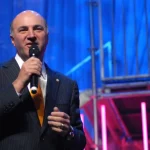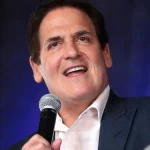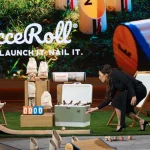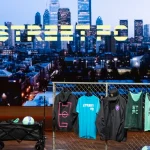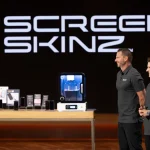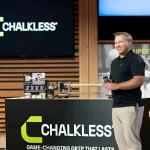Pelagion Shark Tank Update — Shark Tank Season 17
Founder Jamie Schlinkmann along with Mike Terry stepped into “Shark Tank Season 17 Episode 1,” introducing their marine product HydroBlade. The product is completely electric, with zero localized emissions.
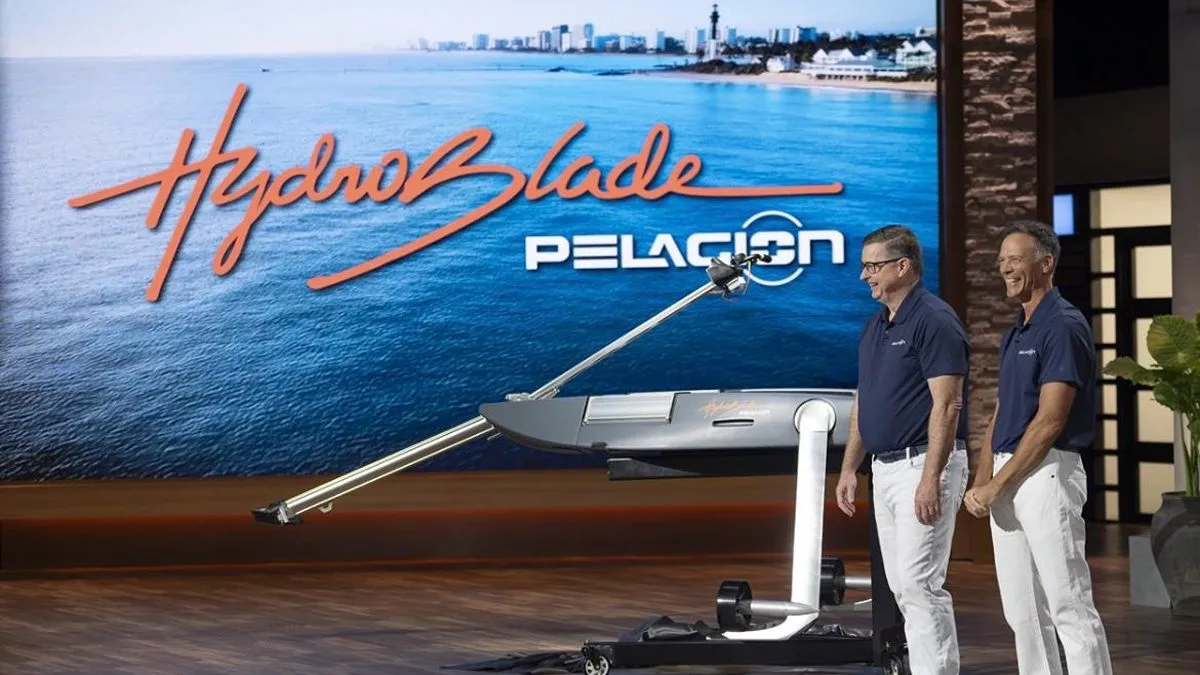
Mike Terry and CEO Jamie Schlinkmann from sunny South Florida entered Shark Tank Season 17 Episode 1 to introduce their brand, Pelagion, an electric Hydroblade. They pitched their high-tech watercraft designed for speed, silence, and no emissions.
So, will the Sharks ride with the wave of innovation, or will their product sink even before it sails?
About Pelagion
| Category | Details |
| Business Name | Pelagion |
| Founder | Jamie Schlinkmann |
| Industry | Marine |
| Product | Electric hydroblade |
| Deal Status | No deal |
| Investment Asked | $800,000 for 4% equity |
The story of the development of this product started with Jamie, the founder of Pelagion, having an original Kawasaki stand-up jet ski. Thus, he felt freedom on the water and started a company in the 90s, building industrial automation products. Though he always wanted to construct marine products.
The other traditional watercraft is bulky, loud, expensive, and, most importantly, it pollutes. Moreover, the product built by Jamie is the world’s first electric hydrofoil with intuitive steering. It makes no noise and offers four hours of silent operation and up to 40 miles per hour speed with zero localized emissions.
Hence, Jamie commenced Pelagion in 2021 by self-funding it and spending almost $2,047,000. However, Kevin O’Leary asked if they were producing more Hydroblades, and that’s when the investors and founders got intense. The founder informed the Sharks that they do not have a production yet and are on pre-orders.
Lori Greiner further clarified that they are displaying one of the prototypes in the tank. She was interested in knowing if they are building it independently or have outsourced the production.
Pelagion Shark Tank Pitch
The founder clarified that Pelagion is a subsidiary of the same brand that supplies manufacturing solutions across many industries. They are also key suppliers to Fortune 500 brands.
Jamie further explained that since they are a machine company, they have the resources needed to build this, such as mechanical, electrical, and software engineers.
Kevin O’Leary seemed dubious and unconvinced about the electric hydroblade, so he asked about the sales they made in 2025. Mike took the opportunity to explain that they made $3.5 million in the last five years.
He further informed the Sharks that they made $2 million in 2024 and $1 million in 2025.
Lori was curious about how much they are going to sell it for. Thus, the founder spoke about the pre-orders. They had 19 pre-orders that they successfully sold in 2025.
The cost of manufacturing the hydroblade is $12,500. Apparently, the brand Pelagion sells it for $25,000. Here, they received a counter from Robert Herjavec, who questioned whether the price was unrealistic and too high, especially compared to competitors selling for $5000–$15,000.
With only 19 pre-orders and no production, the Sharks found the valuation questionable. Every Shark was concerned about the price point.
Lori Greiner even asked if they could reduce the price to half, which means $12,000. The founder agreed and said they were trying to do it, but they were very confident there would be no pushback because of the price.
Did Pelagion Get A Deal On Shark Tank?
Rashaun Williams intervened to clarify the point that the founder is looking for a $20 million valuation in a capital-intensive business. It has pre-orders but no sales, and thus, it requires a lot of money to manufacture and market. Hence, he decided not to participate in the deal.
Then Robert Herjavec mentioned that the pitch given by the founder was very confusing, so he decided to remain out of the deal.
Tension spiked when Kevin criticized the brand’s pitch as “convoluted.” Jamie strongly defended his design. The exchange did not sit well with the Sharks.
However, Kevin O’Leary made sure Jamie knew he could not argue and bark at an investor.
Jamie also decided to withdraw from the deal because he was unsure how he would get his money back. Lori Greiner, too, decided not to participate in the deal.
Kendra Scott, the guest Shark, explained that $800K is just a tiny drop of what they are looking for. He also supported Kevin by clearly stating that the founder’s argumentative tone was a red flag, and he is looking for founders who are more receptive to her input.
Hence, Pelagion did not get a deal from the Sharks, and they had to leave the stage with the evergreen advice given by the investors.
What Makes Pelagion Unique?
There are various reasons why the hydrofoil-made hydroblade is unique and different from its traditional counterparts in boating.
- An electric hydrofoiling personal watercraft that enhances maneuverability, speed, and range. It further elevates the rider’s experience on the water.
- The HydroBlade pushes the boundaries in watersporting technology to combine a skill range of adventurers and water sports enthusiasts.
- This product’s battery enhances technology in three key areas such as safety, efficiency, and value.
Where Can You Buy It?
You can check their official website and Instagram page. The HydroBlade is not yet for sale, but you can pre-order it.
Quick Summary
- The story of the development of this product started with Jamie. Unlike traditional watercraft, which are bulky, loud, expensive, and polluted, Jamie built the world’s first electric hydrofoil with intuitive steering.
- The cost of manufacturing the hydroblade is $12,500. Apparently, the brand Pelagion sells it for $25,000. Thus, they receive a very dubious response from the sharks because of the high price point.
- Every Shark showed zero interest in the product due to its capital-intensive nature and because it had no sales to date.
Check out other Shark Tank Season 17 Episodes.
Curious to know about other businesses that appeared on the same episode? Check out their business updates.



